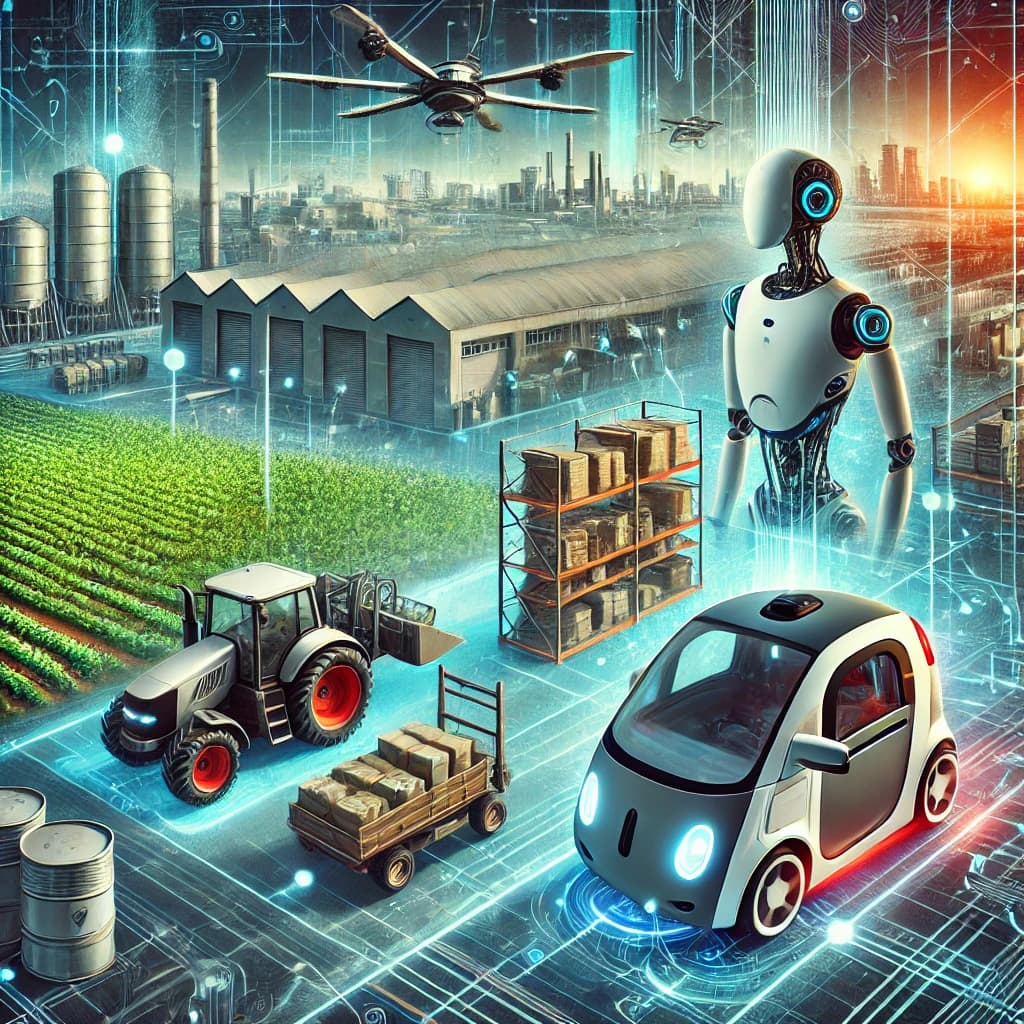What is Agentic AI?
Agentic AI is a type of artificial intelligence that enables us humans to delegate complex tasks to something called an “agent”. In order to fulfill such tasks, agents require unique capabilities and features, setting them apart from other types of AI. You will learn about these capabilities and traits, using definitions and concrete, real world examples.

Capabilities
So let’s start with a real-world example - imagine a warehouse robot, such as those used by companies like Amazon.
The task of the robot is to retrieve specific items from the warehouse shelves and deliver them to designated packing stations. It must deliver them quickly and efficiently, while also avoiding collisions.
This capability is called goal-directed behavior. Agents are designed to work toward specific goals. They follow rules and constraints to ensure their actions are aimed at achieving these objectives successfully.
So now that the goal is clear, the robot is expected to plan its route through the warehouse. This can be done by analyzing a “map" of the warehouse that contains multiple paths it can take. Based on the information it will select the optimal route to its destination.
This is called planning and decision-making. Agentic AIs make plans by looking at different options, comparing them, and choosing the best one. This ability helps them figure out the best way to reach their goals.
After determining the best path the warehouse robot moves by itself through the warehouse, navigating around obstacles, interacting with shelves to pick up items and delivering them to the packing station.
This third capability is called execution of plans, in which agentic AI systems take action to carry it out the plan. This means they complete the cycle of making decisions and following through with those decisions.
In summary, these are the foundational capabilities of Agentic AI:
- Goal-directed behaviour;
- Planning and decision-making;
- Execution of plans.
Features
In order to succeed, Agentic AI systems need certain qualities or features. These will be illustrated by some other concrete examples.
Autonomy
It is characteristic for Agentic AI to work independently, without needing humans to guide them all the time. This means they can make decisions and perform tasks on their own.
Example:
- Self-driving cars: Cars like those developed by Waymo and deployed in certain US cities can drive themselves by understanding road conditions, reading traffic signals, and avoiding obstacles - all without a human driver. This shows autonomy because the car is making decisions in real-time without human control.
Reasoning
Agentic AI systems need reasoning to make good decisions. They look at objectives, rules, and facts, even when the information isn’t complete. They also make decisions under uncertainty by figuring out the best choice with the information they have.
Example:
- Agricultural drones: AI-powered drones in farming analyze data about soil moisture, crop health, and weather. They decide where and when to spray fertilizers or pesticides, adjusting for the fact that things might change - including the weather. This shows reasoning because the drones use (sometimes incomplete) data to make informed choices.
Interaction
Unlike simpler systems like chess computers that only respond to a fixed set of simple inputs, i.e. board moves, an agentic AI is truly open - meaning it interacts with its complex surroundings. It uses sensory input to understand and adapt to its environment.
Example:
- Social robots: Robots like SoftBank’s Pepper can recognize faces, understand emotions, and respond to people by talking or using gestures. This interaction makes them helpful in places like stores and hospitals.
Learning
Agentic AI systems work in environments that change over time. They learn from their past experiences by storing and using information to make better decisions in the future.
Example:
Smart thermostats: AI systems like Google’s Nest learn the temperatures users prefer at different times of the day. They adjust automatically to save energy and keep users comfortable. This shows learning because the system improves based on past interactions.
My conclusion
Agentic AI is a unique class of artificial intelligence systems with advanced capabilities and features: they excel in goal-directed planning, intelligent decision-making, and autonomous action, while being able to adapt to complex and changing environments. Agentic AI has the potential to replace human effort, and for that it can be truly transformative.
